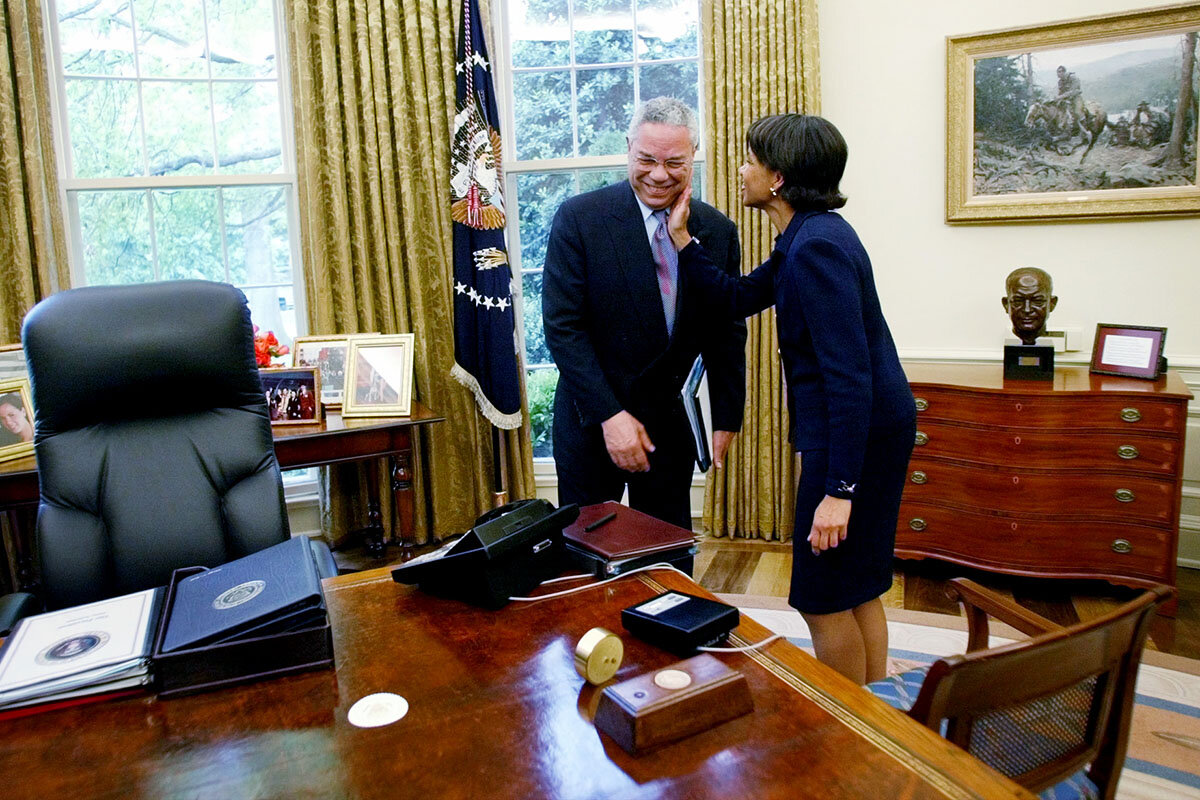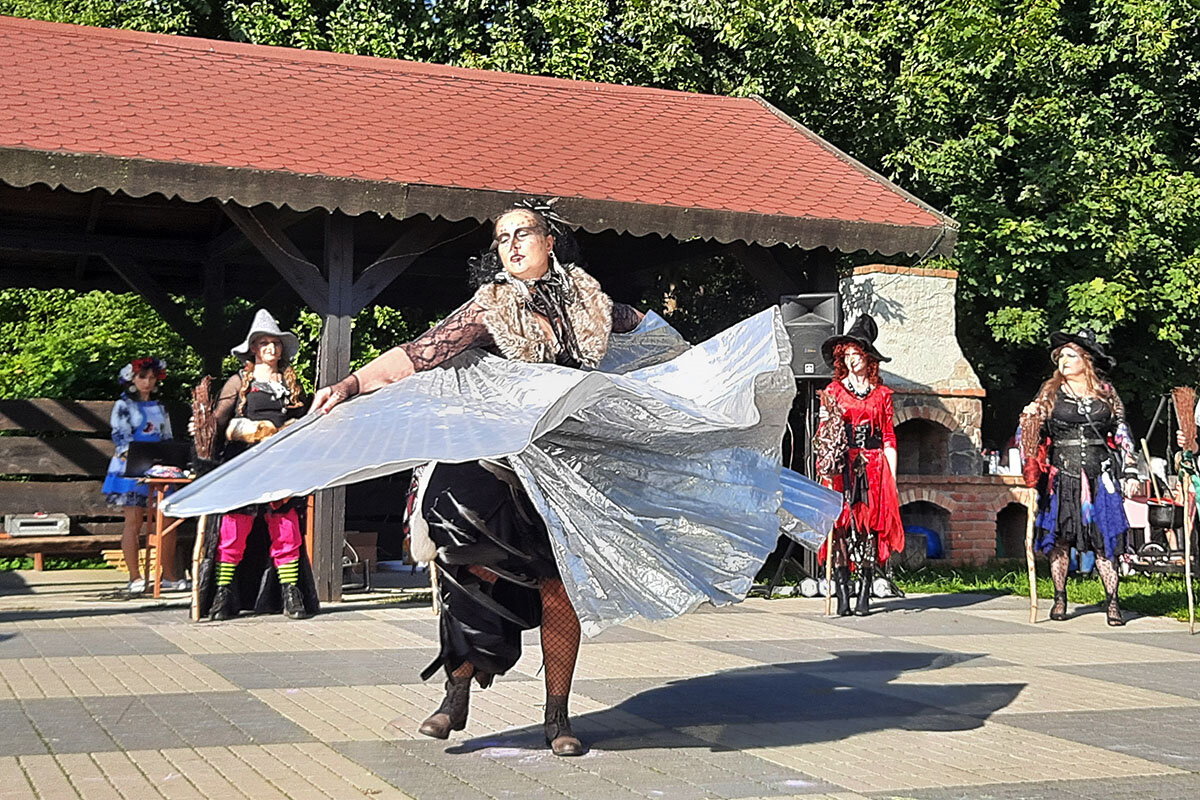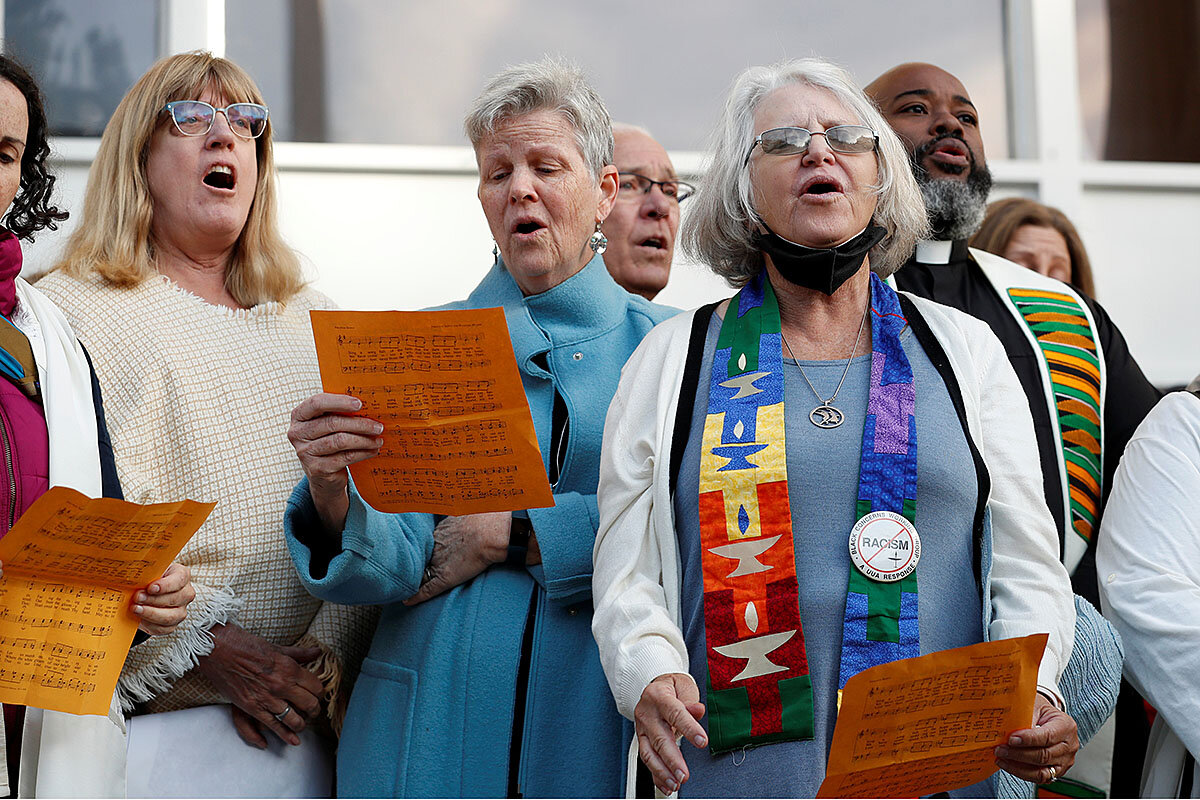Over the past quarter century, Monitor reporter Peter Grier interviewed Colin Powell about everything from hope to his hobby fixing Volvos. He looks back on the life of a thoughtful and witty public servant – one whose sidelining took America down a different road.
Monitor Daily Podcast
- Follow us:
- Apple Podcasts
- Spotify
- RSS Feed
- Download
 Clayton Collins
Clayton Collins
Good storytelling gives good journalism its power. And oral storytelling, an ancient variation, is having another renaissance.
The Monitor dipped into broadcasting in the late 1920s, and then went international via shortwave the following decade. By 1977 we had a radio news service. Outgrowths of that persisted for two decades before what had become Monitor Radio shut down amid other format experiments and the internet’s rise.
In 2018, “Perception Gaps” took us into narrative podcasting. Encouraged by your feedback, we added “Tulsa Rising” and “Stronger.” Now we’re poised to lean in more. Why? Audio can be convenient and engaging, heads up and hands free. It can also be deeply affecting. Audio delivers emotional intimacy. It humanizes. And so:
• Later this week we aim to have a short, standalone audio story (about an equitable approach to addressing a pilot shortage) by Ashley Lisenby, the newest member of our core audio team and the producer of a powerful recent exchange that brought to light Muslim perspectives on 9/11.
• In upcoming weeks we plan to roll out an audio extension of People Making a Difference, with the conversational backstories of some of the people we’ve written about, and introductions to some new ones.
• We’ll be back with more Meet the Monitor writer interviews in December.
• And sometime after the winter holidays, we’ll be unveiling a deep-dive podcast around the themes of respect and identity, with the kind of richness and energy we reached for with last year’s delightful audio series “It’s About Time.”
We’re really just getting started on expanding our journalism in this way. Find our recent audio efforts corralled here, listen for those new shows, and email me at collinsc@csmonitor.com with any thoughts about audio. We’ll be listening too.










